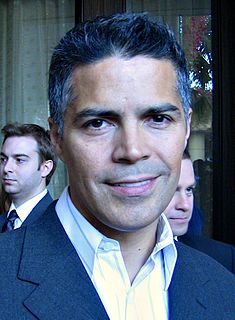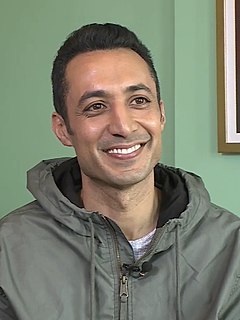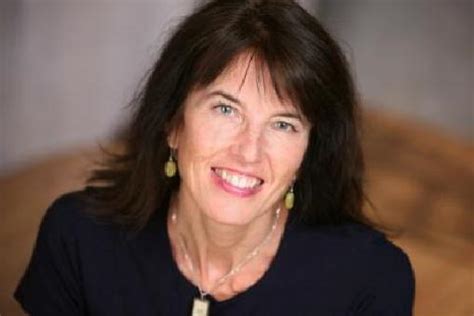A Quote by Walter F. Mondale
There's a lot of bad consequences that flow from segregation. The kids don't do as well. We live separately. We don't learn about each other. We're all Americans. And yet, we separate based on, basically, race. And I believe it's got to stop.
Related Quotes
I agree that all kids of all colors love hip-hop. My point in writing the book was to raise questions about the ways the hip-hop generation and the millennium generation, both who have lived their entire lives in post-segregation America, are processing race in radically different ways than any generation of Americans. I think they have a lot to tell us as a country about ways of addressing race matters.
My colleagues from the Department of Health Behavior and Health Education are working on participatory public health initiatives in Michigan, and there is much that we can learn from each other. In fact it is essential that we strengthen efforts to learn from each other, and stop considering public health in the third world and in the U.S. as separate intellectual and practical endeavors.
I believe I live in a black and white. I think things are like either black or white. I don't really believe that much in the gray. I think that there's gray for a lot of people, but I don't live in the gray. I realize whatever action I have or take, it's going to have a consequence -- either good or bad. So I live my life in a way where I don't have bad consequences. I just notice there's a lot people around me just live in the gray. I don't know, for me, I'm just really straightforward.
It is important to learn from other women. We have a lot to offer and to learn from each other out of our separate and common experience. The sisterhood (including the boilers - the old chooks!) is important to me. The dialogue between women is a rich field, but change does not come without a lot of reading, asking, listening, risk taking and hard work.
The race thing is sort of a misnomer. It's just the human race, right? That's it. The rest of it, and racism, is socially constructed. Nobody is born racist, no one. What happens is other things that are usually based on power, money, feeling good about yourself, or bad about yourself, those things play into hating other people for whatever reason.
Life itself is a race, marked by a start, and a finish. It is what we learn during the race, and how we apply it, that determines whether our participation has had particular value. If we learn from each success, and each failure, and improve ourselves through this process, then at the end, we have fulfilled our potential and performed well.
There are some who ask us to believe that if we want the best of times for ourselves, the fit and the fortunate, then we'll just have to learn to live with the worst of times for millions of other Americans - that we're doomed to be a nation of the lucky and the left-out. I don't believe it. My mother didn't believe it. Your ancestors didn't believe it. And I don't think you should believe it.
Undoubtedly, there are kids with intellectual deficiencies or neurological problems. But a lot of kids shunted into special education classes are deficient only in a willingness to conform to the school pattern.They are just honest, brave kids who say, "I just won't take that, and I don't believe in what you're doing." If you give them an alternative to the usual classroom, they break free of a lot of inhibitions and bad associations, and they begin to learn.
Conflicts, even of long standing duration, can be resolved if we can just keep the flow of communication going in which people come out of their heads and stop criticizing and analyzing each other, and instead get in touch with their needs, and hear the needs of others, and realize the interdependence that we all have in relation to each other. We can't win at somebody else's expense. We can only fully be satisfied when the other person's needs are fulfilled as well as our own.
My son's dad is committed, and involved, and amazing. We're actually really good friends. But I think it's dangerous to speak negatively to the child about your ex or the absent parent, because, believe it or not, they learn very quickly who the other parent is. And it's important that they develop their own attitudes and opinions about that other parent based on their experiences, not based on what someone has said about them.



































